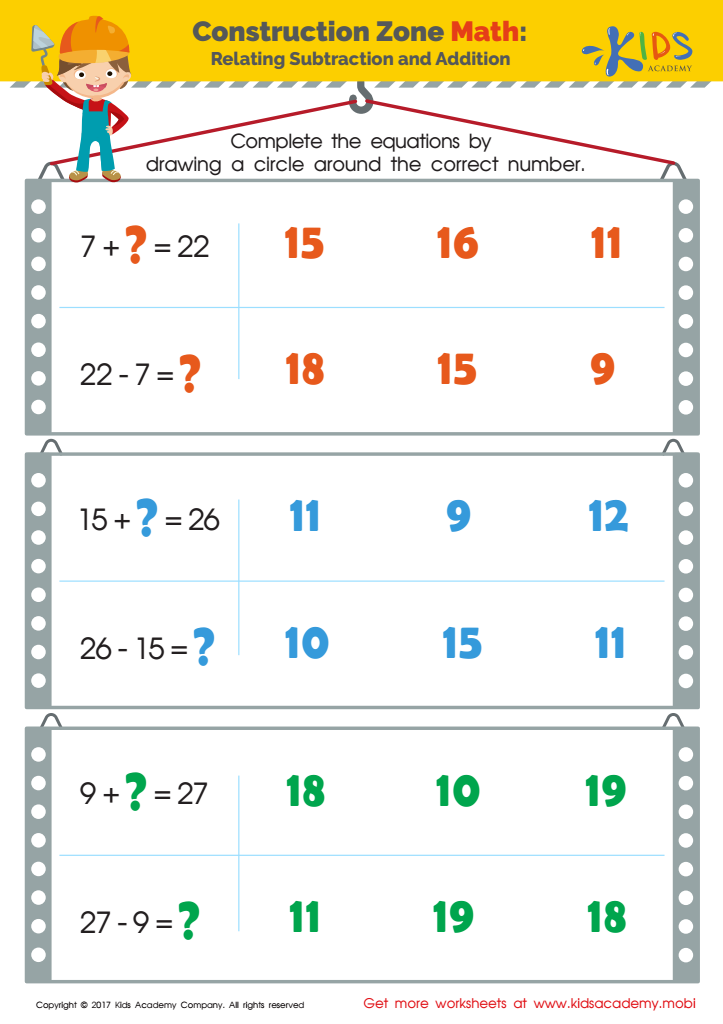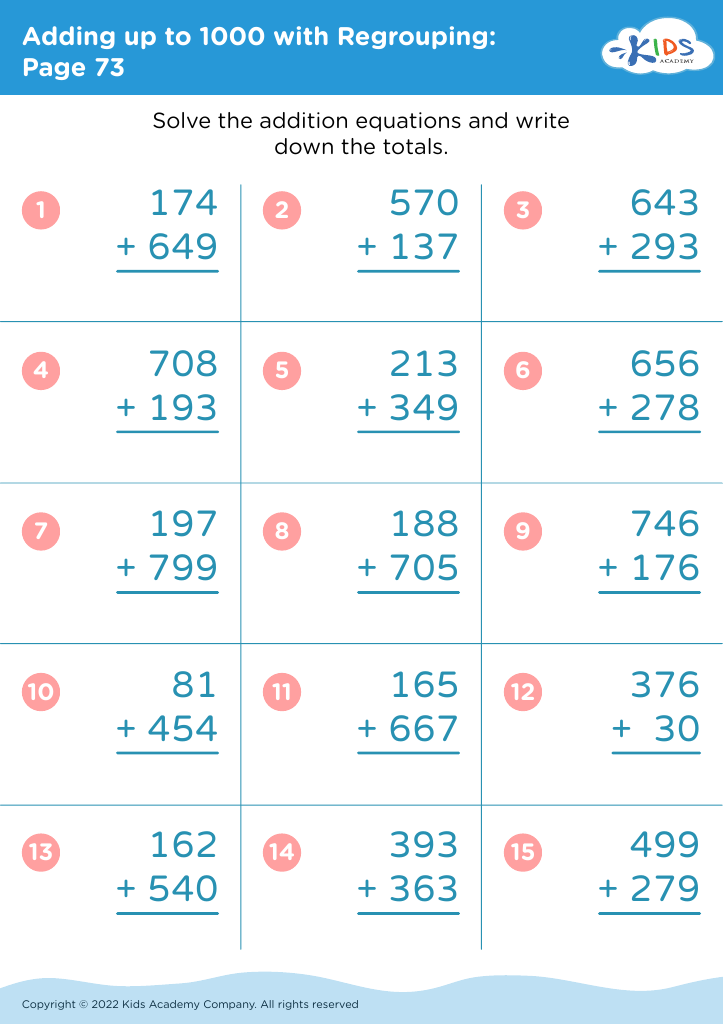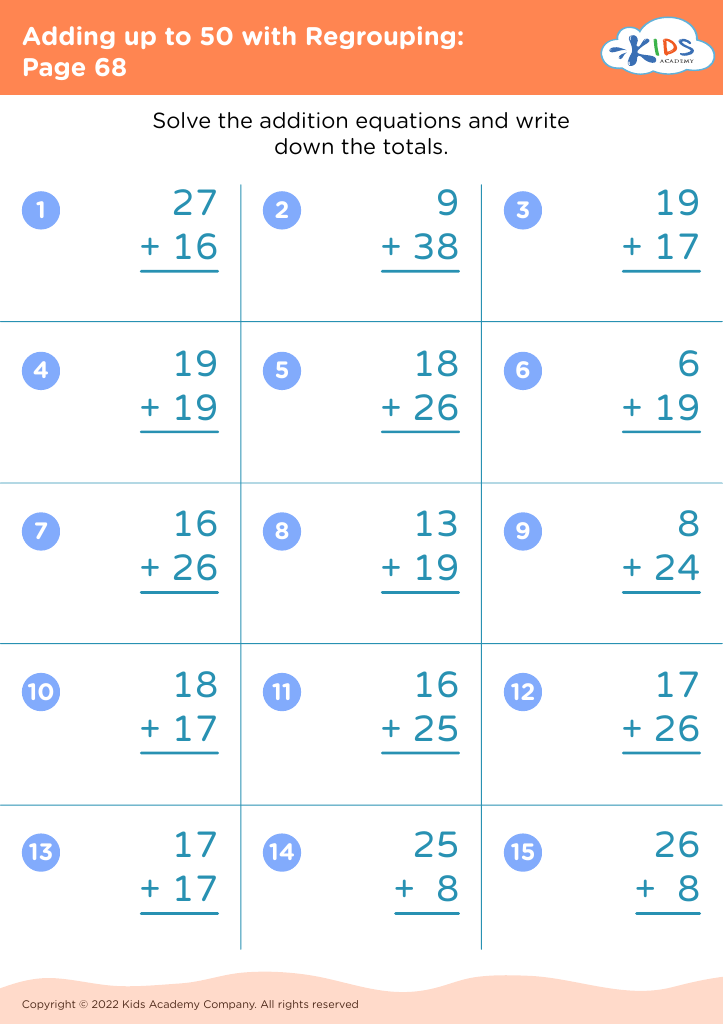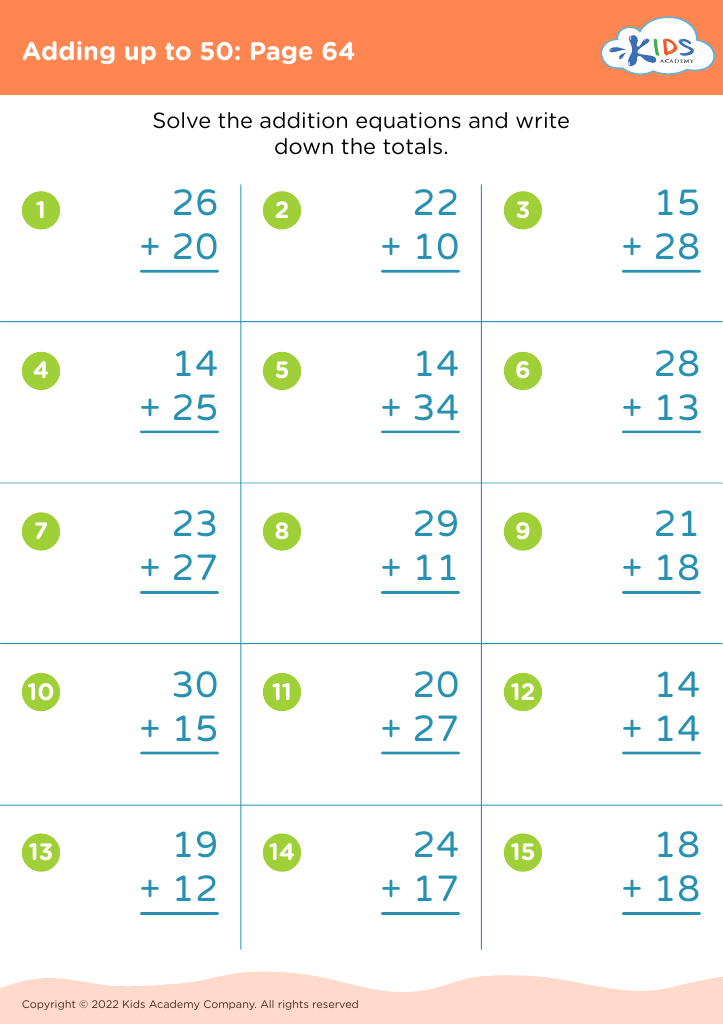Developing logical thinking Addition Worksheets for Ages 3-8
4 filtered results
-
From - To
Strengthen your child's logical thinking with our "Developing Logical Thinking Addition Worksheets for Ages 3-8". At Kids Academy, we understand the importance of building a strong mathematical foundation early on. Our engaging, easy-to-follow worksheets are designed to nurture your child's problem-solving skills, enhance their understanding of addition, and boost their confidence. Tailored for ages 3-8, each worksheet combines fun with learning, featuring colorful illustrations and creative tasks to maintain interest and excitement. Support young learners in developing essential math skills while fostering a love for learning through our comprehensive addition worksheets collection.


Related Addition and Subtraction Facts Worksheet
Developing logical thinking and addition skills in children aged 3-8 is crucial for several reasons. At this age, young minds are remarkably impressionable and lay the foundation for future learning. Logical thinking helps children understand the world around them. By engaging in problem-solving and reasoning activities, children learn to make connections, recognize patterns, and develop critical thinking skills that benefit all areas of learning—be it science, language, or social understanding.
Addition, a fundamental arithmetic skill, is an essential part of this developmental process. Mastering basic addition helps children grasp more complex mathematical concepts in later years, supporting their academic success across various subjects. Moreover, when children perform addition tasks, they are not merely crunching numbers but also enhancing their cognitive abilities, such as memory, attention, and concentration.
Furthermore, introducing logical thinking and addition early can boost a child’s confidence. Understanding simple math concepts builds a child's self-esteem, allowing them to tackle new challenges with a positive attitude. Early success in these areas can evoke a lifelong love for learning and critical thinking.
Thus, both parents and teachers should prioritize developing these skills to set the stage for children's overall cognitive development and future academic achievement.




 Assign to My Students
Assign to My Students



















